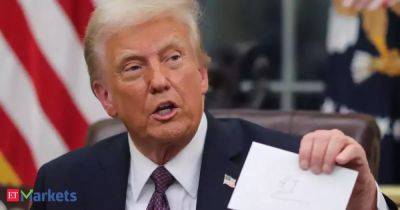Workers love Donald Trump. Unions should fear him
Subscribe to enjoy similar stories. America’s unions have had a banner year. In November 33,000 machinists returned to their stations at Boeing having won a 38% wage increase over four years.
Their victory followed a seven-week strike that brought the planemaker to its knees. A month before, 47,000 dockworkers walked out for three days at some of the country’s busiest ports. And on December 19th the Teamsters union announced a nationwide strike against Amazon, just in time for Christmas deliveries.
According to the Bureau of Labour Statistics, 29 work stoppages involving more than 1,000 employees each began between January and November (the total in 2023 was 33, the most since 2000). The National Labour Relations Board (NLRB), the federal agency tasked with resolving labour disputes, says petitions to hold a vote to unionise are up by more than a quarter compared with last year. America’s unions are asserting themselves in other ways, too.
United Steelworkers loudly opposed the purchase of US Steel, a rustbelt icon, by Nippon Steel, a Japanese competitor (both Joe Biden and Donald Trump have committed themselves to blocking the deal). This month a court blocked the merger of Kroger and Albertsons, two big grocers, putting some weight behind the Federal Trade Commission’s argument that the deal could weaken the hand of union workers, as well as raise prices. Despite—or perhaps because of—all this action, unions’ approval ratings are at their highest since the 1960s, according to polling from Gallup.
What will Mr Trump’s second term mean for this momentum? American conservatism is certainly edging closer to the country’s workers. Mr Trump has promised “historic co-operation between business and labour". Yet his
. Read more on livemint.com livemint.com
livemint.com



















